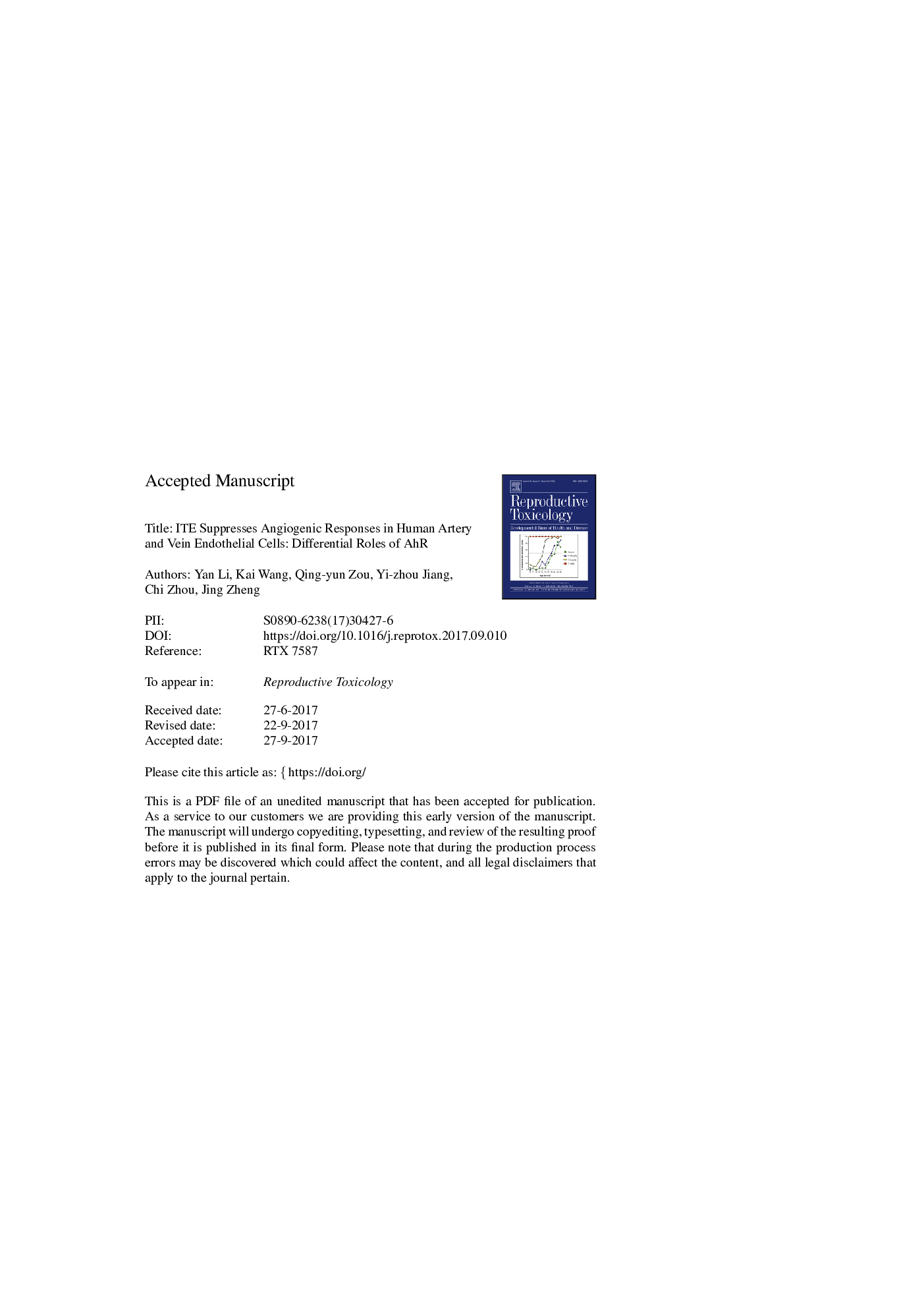| Article ID | Journal | Published Year | Pages | File Type |
|---|---|---|---|---|
| 8552573 | Reproductive Toxicology | 2017 | 26 Pages |
Abstract
Aryl hydrocarbon receptor (AhR), a ligand-activated transcription factor is involved in regulation of many essential biological processes including vascular development and angiogenesis. 2-(1â²H-indole-3â²-carbonyl)-thiazole-4-carboxylic acid methyl ester (ITE) is an AhR ligand, which regulates immune responses and cancer cell growth. However, the roles of the ITE/AhR pathway in mediating placental angiogenesis remains elusive. Here, we determined if ITE affected placental angiogenic responses via AhR in human umbilical vein (HUVECs) and artery endothelial (HUAECs) cells in vitro. We observed that ITE dose- and time-dependently inhibited proliferation and viability of HUAECs and HUVECs, whereas it inhibited migration of HUAECs, but not HUVECs. While AhR siRNA significantly suppressed AhR protein expression in HUVECs and HUAECs, it attenuated the ITE-inhibited angiogenic responses of HUAECs, but not HUVECs. Collectively, ITE suppressed angiogenic responses of HUAECs and HUVECs, dependent and independent of AhR, respectively. These data suggest that ITE may regulate placental angiogenesis.
Keywords
AHRfluorescein 5(6)-isothiocyanatecomplete growth mediumNeuropilin 2VEGFCHPAECsFGF receptor 1VEGF receptor 1VEGFR1reverse transcription-quantitative PCRCYP1B1CGMITEFGFR1FGF2CYP1A1TCDDFBSFITCGAPDHVEGFR2VEGFAHUVECS2,3,7,8-Tetrachlorodibenzo-p-dioxin3-(4,5-dimethylthiazol-2-yl)-2,5-diphenyltetrazolium bromideB[a]PMTTAngiogenesisBenzo[a]pyrenefetal bovine serumhuman pulmonary artery endothelial cellsEndothelial cellsfibroblast growth factor 2Vascular endothelial growth factor AVascular endothelial growth factor Cneuropilin 1Polycyclic aromatic hydrocarbonsPAHsglyceraldehyde 3-phosphate dehydrogenaseVEGF receptor 2aryl hydrocarbon receptor
Related Topics
Life Sciences
Environmental Science
Health, Toxicology and Mutagenesis
Authors
Yan Li, Kai Wang, Qing-yun Zou, Yi-zhou Jiang, Chi Zhou, Jing Zheng,
